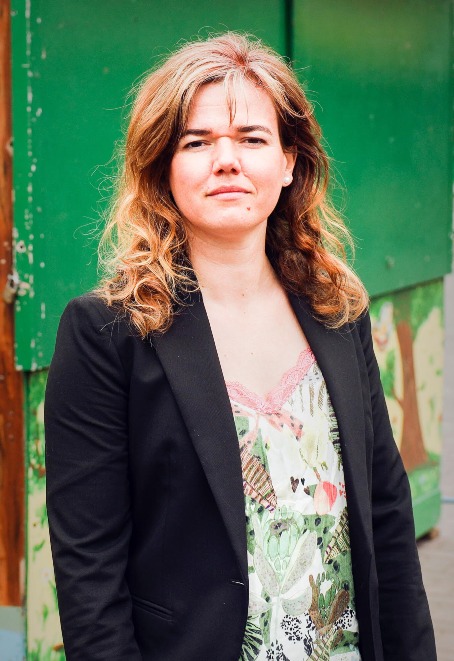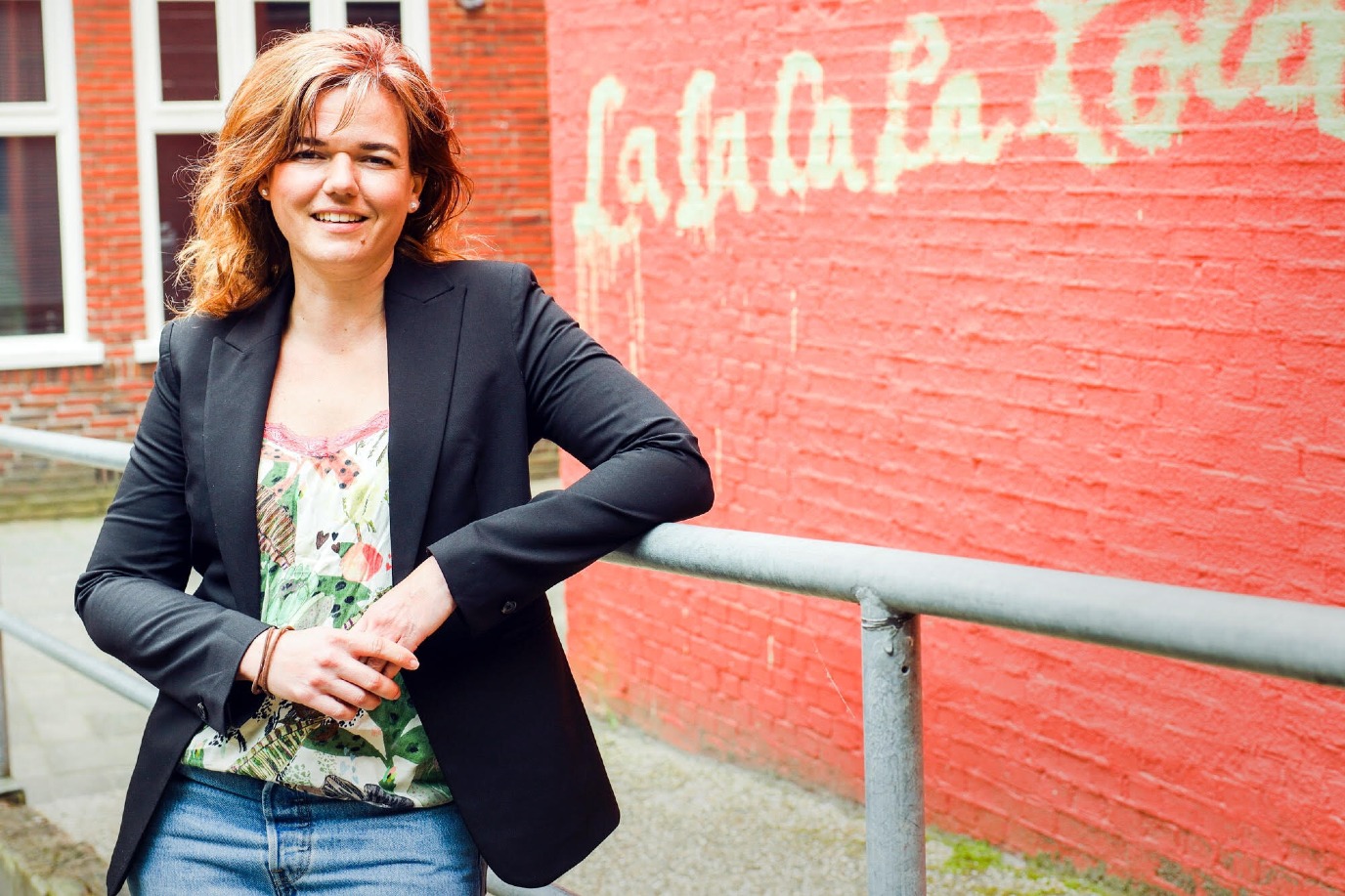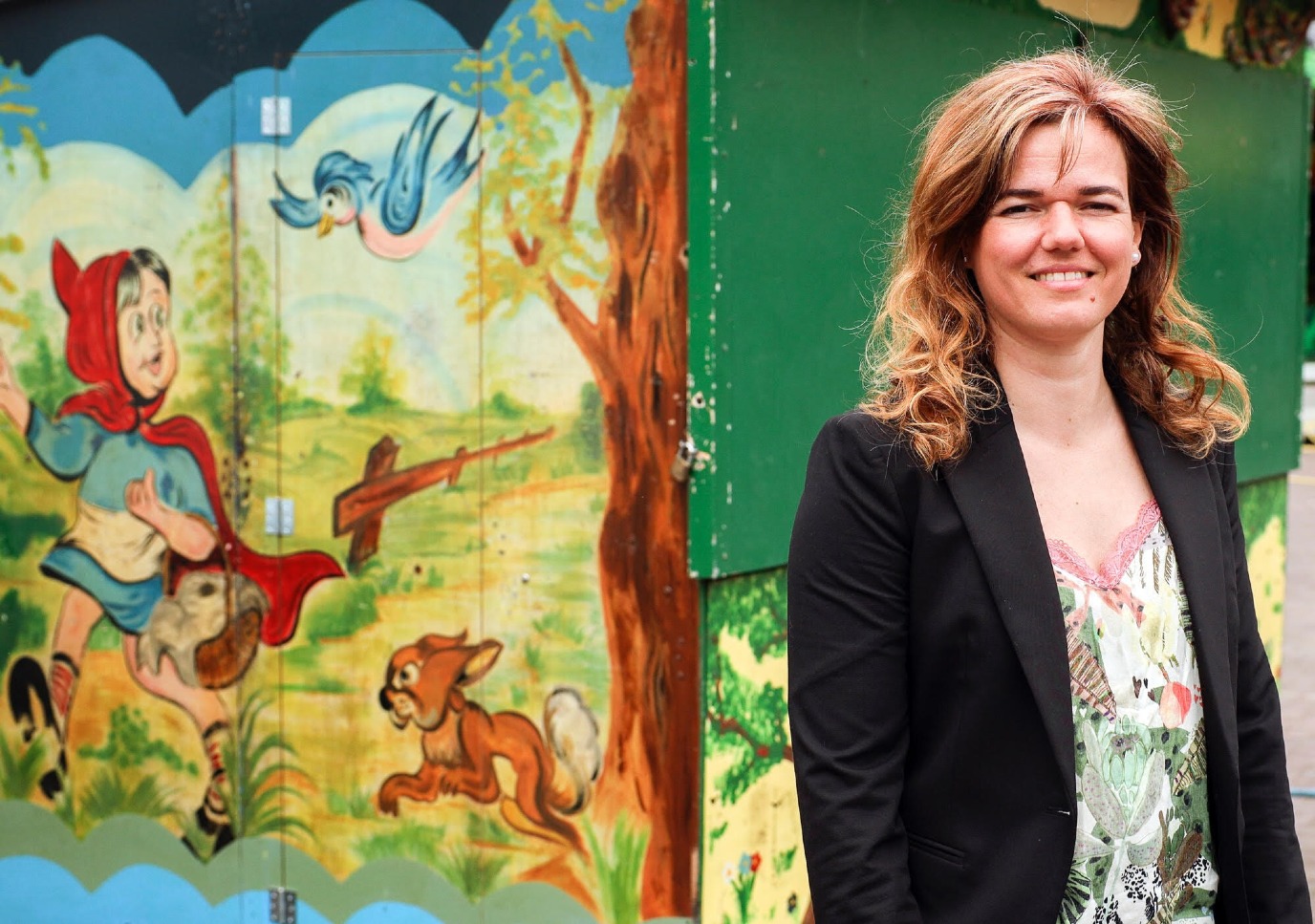Those who do something wrong, deserve punishment. Right?
When exactly is someone responsible for their actions? And is punishment always the most constructive option? Philosopher Daphne Brandenburg argues for a little bit more nuance. According to her, we should pay more attention to the way in which we deal with children who do something that is not allowed. That can teach us a lot about how to hold adults responsible. And that might very well make the world a nicer place.
Text: Marrit Wouda / Photo’s: Henk Veenstra

Responsibilities
We continuously hold each other responsible. Both blame and praise are reactions to actions of people we hold responsible for their actions: a compliment for something that is really someone's own merit, a reproach when we assume the other person could have known and done better. Brandenburg, assistant professor of Applied Ethics explains: ‘Within ethics, responsibility is said to presuppose that people have certain abilities. And it is only just to punish them for their actions when they have these abilities. We generally assume that children still lack those abilities, and are consequently less responsible.’
Lessons and retribution
That raises the question when we do have these abilities. From what age and under what circumstances? When and why are adults who transgress these norms competent enough? Psychology tells us that moral awareness and insight in the consequences of your actions develop during childhood. According to Brandenburg, that is why we apply responsibility in a different manner to children. There are at least two different reasons to hold someone responsible. First, you can do this because you think it will benefit that person and they will learn something from it. And second, you can do this because we think it is fair that there are consequences for behaviour, or, in other words, because that person deserves punishment. When it comes to children, we feel more comfortable with the first reason: children are young and still need to learn ‘how it works’. We are less concerned with the second reason, retribution, because the consequences can have a greater impact on children than on adults.

Bully
Brandenburg gives an example: when a child bullies another child, it is important for the victim that the bully is held responsible. But whereas with adults we mainly want a bully to be punished severely, with children we find it more important that the bully is held responsible in a way that leads to better insight, understanding, and self-regulation. ‘What you actually hope for is that it can lead to a constructive conversation, and that you find out why the bully did what he did, where that behaviour stems from,’ Brandenburg says. In other words: we try to understand the bully, and the bully himself is held responsible in such a way that it leaves room for recovery, the ability to learn, and grow.
Apologizing
The suggestion to look at underlying and possibly mitigating circumstances can cause feelings of discomfort. ‘But if we can hold children responsible in a way that does not impede their moral development, but works well with it, why would we be unable to do that with adults too?’ Brandenburg says. ‘With adults, we are afraid that we directly forgive someone, and therefore hold them to a lesser extent responsible for their actions . 'But that is absolutely not the case. Trying to understand is absolutely not the same as approving.’ For this reason, we would be well advised to take a closer took at our criminal law. Brandenburg continues: ‘Many forms of punishment and blame are not constructive. If we find moral insight important, then you will not achieve this with incarceration, for example. Ultimately, most people learn very little from a prison sentence.’
Understanding is not approval
That is why Brandenburg would like to see us create more space between punishing and forgiving someone. ‘I think that, in many forms of crime, there are better ways to represent the interests of the victim, perpetrator, and society.’ Brandenburg understands that this is a strong statement that can cause intense emotions for some people. ‘When someone does something horrible, I get those same feelings of revenge and retribution.’ Those feelings are very useful: they give meaning to what is happening in the world. They tell us a great deal: what we consider important, what boundaries there are, that it is very serious when someone crosses that boundary, and that there must be a consequence attached to it. ‘And that may well be strict, but it need not be at the expense of the ability to learn. And when done properly, I believe punishment aimed at reparation can be much more satisfying for victims and bystanders.

Changing norms
As far as Brandenburg is concerned, more room needs to be created to understand underlying emotions and circumstances and to support the recovery and moral development. This is especially necessary when norms change rapidly, as is the case with racism, sexism, what is and is not allowed - all areas where norms change rapidly. And while some people fight to change that norm, others still have difficulty understanding it. ‘And again: that does not mean that a misstep is not a bad thing. But it is a place where we should look for space between punishment and forgiveness,’ Brandenburg says. The more complicated and newer the norms are, the more important it is to understand each other's emotions and motivations, and give each other a chance to learn from them. ‘We will have much more to gain from that in the end.’
To be continued at YAG
Brandenburg brings up some complicated issues that call for applicable solutions. Such as the issue of AI, which Brandenburg also faces as head of the examination board ‘To put it practically: you want students to learn certain things and not to commit fraud. Which leads to a philosophical question: what do they have to learn and to what extent may that depend on or be supported by this technology?’ And once again, the question of responsibility is relevant in this regard: can you give a compliment for a valuable achievement when AI was used? And: when and why should we punish the use of AI?
The solution cannot be found within applied ethics. ‘This calls for an interdisciplinary approach. We have to enable different fields and people from outside the university to answer these questions together. A major task, but one she can work on within the Young Academy Groningen (YAG) which she will join this year.
More news
-
08 December 2025
Citizen participation essential for a sustainable energy future
-
02 December 2025
Trust in science requires integrity in communication
-
28 October 2025
The search for responsibility in the financial world
